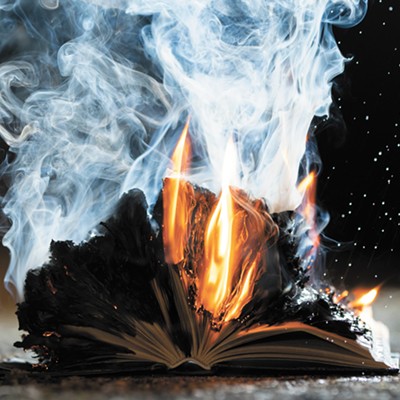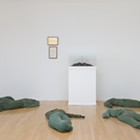This book’s trying to trick me. All throughout, it mounts arguments against anyone reviewing it, offering up theories as to how to properly enjoy or even construct a novel.
Meg, the protagonist in Our Tragic Universe, isn’t sure what to believe. She’s a genre novelist who longs to put out a great literary effort, but instead finds herself stringing along paycheck-to-paycheck (well, paycheque, since the novel’s British) from her day job as a scientific book reviewer.
Part love story, part philosophical treatise and part literary theory textbook, Our Tragic Universe isn’t quite sure what to make of itself. It’s ironic, or postmodern, or meta. Or something.
At any rate, it’s one of those books that has you feeling a low, throbbing pressure just behind your eyes that grows with every page. The characters discuss things like the storyless story, which doesn’t follow the traditional three-act plot, even as their own stories subvert typical narrative structure right in front of your eyes.
It’s a writer writing about a writer who’s having trouble writing. As such, it’s likely catering to a small group of people: novelists, aspiring novelists, English majors and baristas (i.e., former English majors). The pseudo-scientific philosophical theories of everything don’t really seem like they fit. But the long, rambling conversations about stories — how we approach them, and even what the point is in telling them at all — feel much more appropriate. These small flashes kept me engaged, but weren’t enough to make me overlook the problems.
The novel might very well be brilliant. It might also be crap. Mostly, it just feels like a novel that’s trying very hard to mimic the ideas contained within. Perhaps it’s trying, as Meg says, to be a story “with so much emotional truth that none of it seems like a story at all.” That may be a lofty goal, but it really doesn’t make for much of a novel. It also invites the somewhat snide question: How are we supposed to enjoy a story that’s not really a story at all?





















